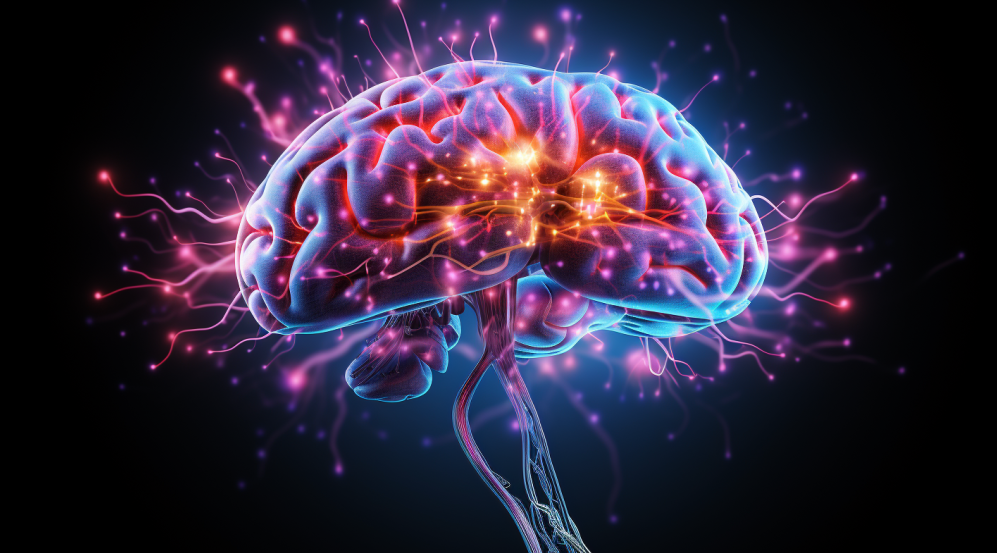Brain Health Habits to Improve Mental Health

©️ Guilherme Almeida / Pexels, Milad Fakurian / Unsplash
We all need a break or two sometimes. But, school, work, and other social or personal responsibilities sometimes don’t allow us to fully take care of ourselves. This can take a big toll on not only your physical well-being but your mental health as well.
It is always important to prioritize your well-being, however, some life occurrences can make this harder than it may seem. So, what brain health habits can you use to improve your mental health?
Brain Health Habits You Can Follow
Whether you are old or young, taking care of your well-being is always important. Here are a few tips and tricks you can follow to improve your mental health:
1. Meditate
Incorporating meditation into your daily routine is a powerful brain health habit. Meditation helps reduce stress and anxiety by calming the mind and encouraging a state of mindfulness. This practice has been linked to changes in brain structure and function, promoting better focus, emotional regulation, and mental clarity over time.
2. Talk to your friends or family
Engaging in social activities and maintaining meaningful relationships is important for overall brain health. Social interaction stimulates cognitive processes and emotional well-being, reducing the risk of depression and cognitive decline as you age.
3. Try starting a journal
Keeping a journal can be a therapeutic and brain-boosting habit. Writing about your thoughts, feelings, and experiences allows you to process emotions, organize your thoughts, and gain insight into your own mental processes. Journaling can also serve as a creative outlet, stimulating your brain’s cognitive and emotional functions.
4. Get enough sleep
Making sleep a priority and practicing good sleep hygiene are fundamental habits for cognitive well-being. During deep sleep, the brain consolidates memories and clears toxins, which is essential for maintaining cognitive function and preventing neurodegenerative diseases in the long run.
5. Try Yoga
Exploring yoga as a regular practice can bring a multitude of benefits to your overall well-being, including brain health. Yoga combines physical postures, controlled breathing, and mindfulness, which can reduce stress, improve concentration, and enhance cognitive function. Moreover, it encourages relaxation and can even lead to better sleep patterns, which further support brain health.
6. Use social media less
Reducing your time on social media can positively impact your brain health. Excessive use of social media platforms can lead to addiction-like behaviors and a constant stream of information that can overwhelm your brain. Limiting social media usage can improve focus, reduce the stress associated with comparisons and negative content, and free up time for other brain-enhancing activities.
7. Eat nutritional food
Maintaining a balanced diet that includes a variety of foods rich in essential nutrients is crucial for optimal brain health. Foods like fatty fish (high in omega-3 fatty acids), colorful fruits and vegetables (abundant in antioxidants), and whole grains provide the brain with the necessary nutrients to function at its best and protect against cognitive decline.
Including brain-boosting foods like blueberries (rich in antioxidants), nuts (packed with healthy fats and vitamin E), and leafy greens (abundant in vitamins and minerals) in your diet can significantly contribute to better cognitive function and long-term brain health.

8. Take time to rest
Rest is fundamental. Taking breaks and allowing yourself downtime to relax and recharge is essential for maintaining cognitive stamina and mental clarity. Overworking and constant stress can lead to burnout and negatively affect your brain’s performance in the long run.
9. Get some Vitamin D
Whether you get it from the sunny sun out in the sky, or with the help of supplements is not an issue! Ensuring you get enough Vitamin D is essential for maintaining not only overall health but also brain health. Vitamin D plays a crucial role in brain development and function. It helps support the growth of new neurons, protects against cognitive decline, and may even reduce the risk of neurodegenerative diseases. You can obtain Vitamin D through sunlight exposure or dietary sources like fatty fish and fortified foods.
10. Take a walk
Taking a leisurely stroll might seem like a simple and commonplace activity, but it can have profound effects on your overall well-being, both physically and mentally. While a walk in itself may not be a cure-all for complex mental health conditions, it serves as a valuable tool for promoting mental and emotional health.
11. Try a physical sport
Learning plays a vital role in maintaining a healthy brain, but it doesn’t always require acquiring a new language or skill. Engaging in social hobbies that involve physical activity can also be highly beneficial. Activities such as playing football, volleyball, or basketball. Another great way to let your frustrations out is to try kickboxing as well!
12. Show self-compassion
The world can definitely be cruel sometimes. That is why it is more than important to be kind to yourself. One often overlooked but immensely powerful strategy for improving mental health is the practice of self-compassion. Self-compassion involves treating yourself with the same level of care, empathy, and understanding that you would offer to a close friend facing a difficult situation. It encompasses three main components:

Things to Consider for Brain Health Habits
While the strategies mentioned earlier are undeniably valuable for enhancing mental well-being, it’s important to acknowledge that they are not a panacea for mental health conditions. In other words, adopting positive habits and lifestyle changes may not always be sufficient to completely alleviate persistent mental distress. However, it’s crucial to recognize that seeking the assistance of a therapist can be incredibly helpful.
The availability of professional support is open to anyone, regardless of whether they are grappling with depression, anxiety, or any specific mental health symptoms. Therapy can be an avenue for personal growth and resilience, no matter what your mental health situation is.
When to Reach Out?
That being said, reaching out to a mental health professional becomes particularly vital in certain situations:
- After experiencing a stressful or traumatic event. Trauma can have lasting effects on mental well-being, and a therapist can provide guidance on coping and healing.
- When you notice heightened emotional distress. If you find yourself feeling more upset, anxious, or sad than usual, a therapist can help you navigate these emotions and develop effective coping strategies.
- When persistent irritability or agitation becomes the norm. If you frequently feel agitated, irritable, or angry, a therapist can assist in identifying the underlying causes and implementing strategies to manage these emotions.
- When motivation takes a nosedive. A significant loss of motivation can be a sign of various mental health concerns, and a therapist can work with you to regain a sense of purpose and direction.

- When changes in appetite and sleep patterns emerge. Noticeable shifts in your eating or sleeping habits can signal underlying mental health issues that a therapist can help address.
- When daily functioning becomes challenging. If you frequently struggle to get through the day due to emotional or cognitive challenges, a therapist can provide guidance and support to improve your daily life.
- When feelings of being stuck or overwhelmed persist. Persistent feelings of being stuck or overwhelmed can hinder personal growth and well-being, making therapy an invaluable resource.
- When unhealthy coping mechanisms are employed. If you find yourself turning to alcohol, substances, or other unhelpful behaviors as a means of coping with life’s challenges, a therapist can assist in developing healthier strategies for managing stress and difficulties.
Now, the dance floor is your stage! We would love to hear from you. What are your favorite brain health habits? Is it learning a new language, taking up a physical hobby, or something entirely different? Share them down below!


